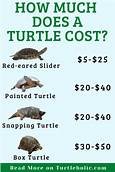When Does Pet Insurance Kick In?
Pet insurance can provide peace of mind and financial protection for pet owners in case their furry friend experiences an unexpected illness or injury.

Waiting Periods
Most pet insurance policies have a waiting period before coverage begins. This waiting period can vary from company to company, but it is typically 14 to 30 days for accidents and 14 days to six months for illnesses.
The waiting period is designed to prevent people from taking out a pet insurance policy just before their pet needs expensive treatment. It also gives the insurance company time to review the pet's medical history and make sure that there are no pre-existing conditions that are not covered by the policy.
Coverage Start Date
The coverage start date for your pet insurance policy is the date that coverage begins. This date is typically the day after the waiting period ends.
It is important to note that the coverage start date is not the same as the policy start date. The policy start date is the date that you sign up for the policy and pay your first premium. The coverage start date is the date that coverage actually begins.
When to File a Claim
If your pet experiences an accident or illness during the waiting period, you will not be able to file a claim. You will need to wait until the coverage start date before you can file a claim.
If your pet experiences an accident or illness after the coverage start date, you can file a claim with your insurance company. You will need to provide the insurance company with information about the accident or illness, as well as the veterinary bills that you have incurred.
Reimbursement
Once your claim is approved, you will be reimbursed for the veterinary bills that you have incurred, up to the limits of your policy.
Factors That Can Affect When Coverage Kicks In
There are a few factors that can affect when coverage kicks in for your pet insurance policy.
- The type of policy you choose: Some policies have shorter waiting periods than others.
- The age of your pet: Older pets may have a longer waiting period than younger pets.
- The breed of your pet: Certain breeds of dogs and cats are more prone to certain health conditions, which can affect the waiting period.
- The health of your pet: Pets with pre-existing conditions may have a longer waiting period or may not be eligible for coverage at all.
Conclusion
It is important to understand when coverage kicks in for your pet insurance policy so that you can be prepared for any unexpected veterinary expenses.
Declaration: All article resources on this website, unless otherwise specified or labeled, are collected from online resources. If the content on this website infringes on the legitimate rights and interests of the original author, you can contact this website to delete it.





